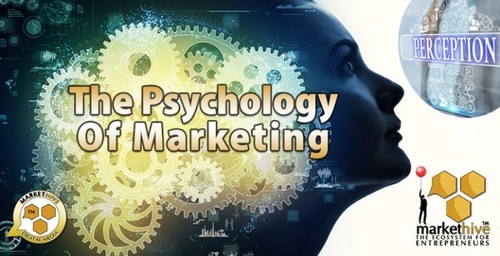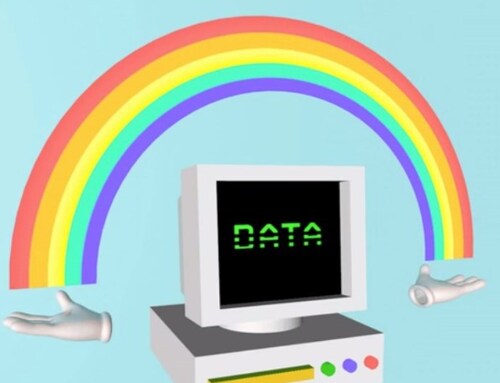
The Psychology Of Marketing
Marketing aims to identify and satisfy customer demands by providing products and services. The marketing process includes exploring, creating, and delivering value to meet a target market's needs, whether online or at trade shows and public events.
The decision to launch a marketing campaign is reasonable based on several factors, such as the availability of products, the need to correct erroneous information, or a desire to drive traffic to a particular website.
You can implement a marketing campaign to emphasize specific themes or attributes and select a target audience. These themes or features may inform customers about the value of that particular product or service or inspire them to purchase it. It is essential to know your target demographic, as it allows you to tailor your ads to meet their needs and desires.
Marketing arose as a result of the rapid development of civilization. As long as there was an excess of demand over supply, manufacturing companies could concentrate on production only. However, with the rapid growth of technology, the production process accelerated, and gradually the market began to satiate until supply began to exceed demand. At that moment, solving how and what to produce was already necessary.
With the modernization and simplification of production, the number of companies on the market also grew, and consumers got more choices. With increasing competition, companies began to address the question of what steps to take to make consumers choose their products. And hence there was space for the emergence of marketing.
Thus, marketing creates links between the market and businesses. It is based on human needs and desires. The human factor is applied and manifested both on the demand and supply sides. It is evident that psychology will also play a role in marketing.
Five Basic Psychological "Tricks."
1. Reciprocity (commitment)
– give a little something for free, and then it'll come back to you
as no one wants to be in debt
2. Liquidation Offer and Consistency
– we don't all like to make decisions
– we are afraid of the new and the unknown
– we'd better shop at a friend's
3. Price Anchor and Contrast
– When something's on sale, we go and shop
4. Paralysis of Decision-making
– make it easier for people to make a choice and make an offer that, at a glance,
is the best possible solution you can buy
5. Social Proof
– a lot of people have already bought it.
More About These Five Points:
What is the principle of reciprocity?
One person gives another a "gift," and the donee feels obligated. Thus, they feel a natural obligation to return the gift (to meet the following requirements of the donor).
What is a liquidation offer?
It is an offer so convenient and cheap that we do not have to think about buying for a long time. The price tag of such a liquidation offer is often meager, so we just do not have to consider for a long time whether it will pay off for us or not.
How does the principle of consistency work?
The principle "advises" us not to take risks and do what we already know and have tried. It protects us from the fear of the unknown. It is the principle people follow when they shop in the same supermarket for years, even if a few meters away is a new modern supermarket, which is cheaper and has a broader range.
What is a price anchor?
Discounts in marketing can work precisely because of the price anchor. It is the price tag or value of the goods. For example, when a product costs 100 USD, the price anchor equals 100 USD. When the goods suddenly have an "action" price of 69 USD, it seems advantageous to us thanks to the price anchor.
What is the paralysis of decision-making?
It is caused by more similar offers where the customer hesitates on what to choose.
Eliminate selection where possible or pre-select the most crucial option – the most effective solution to decision paralysis.
How does contrast work in marketing?
It is similar to a price anchor. In short, we compare two variants (more expensive / cheaper). And naturally, we choose the more profitable one.
If it is not evident at first glance which offers are better, then follows a decision paralysis. In this case, customers often choose neither because they are looking for the best possible solution (convenience, savings, etc.) and cannot make a choice.
What is social proof?
It's confirmation from other people that our decision is the right one. These are references, sales figures, but also, for example, restaurants full of people.
Half of all our activities are based on habit.
In marketing, on the contrary, we need to break the potential customer out of his habit. But psychologists have observed that we are most accessible when we have a life change – we are moving, we have a baby, we are approaching 20., 30., 40., 50…. birthday.
Finally, Something About Colours
Colour psychology is the study of hues as a determinant of human behaviour.
Carl Jung was one of the pioneers of the interpretation of colours and their significance for the human psyche.
Jung said,"colours are the mother tongue of the subconscious." Colour influences perceptions that are not obvious, such as the taste of food. Colours have qualities that can cause certain emotions in people. They can carry a specific meaning.

What Is New In The Last Years
Biochemical marketing, as the new type of marketing is called, can increase efficiency by up to half and reduce costs by 70-80% in the format of low-cost multi-layered marketing. And in doing so, it is enough to know and use the biochemistry of four substances generated in a healthy human body: serotonin, dopamine, endorphin, and oxytocin.
Each of these substances has its own features and functions. Still, they are all responsible for positive changes in the human body, increasing the level of trust between people, reducing stress and anxiety, and creating a sense of well-being. And thanks to this, low-cost marketing can be done through public relations, social media, events, etc., with the help of biochemistry.
In no case should we forget, whatever methods we use, that our goal is a satisfied customer who returns. The applied psychology of the marketing world helps to find the necessary keys to understanding how the human mind works and is the basic knowledge of getting potential customers to buy your products eventually.
Although, at first glance, marketing may seem like a simple matter, if you delve into the issue more, you may start to feel a little lost. Markethive will provide you with comprehensive marketing tools. It is a platform for entrepreneurs with many innovative features. You will find all the tools for your business under one roof and have the opportunity to contribute to the spirit of friendly cooperation.
"Marketing is a war of perceptions.“ Ivo Toman
Sources:
https://www.marketingovenoviny.cz
Tim Moseley
